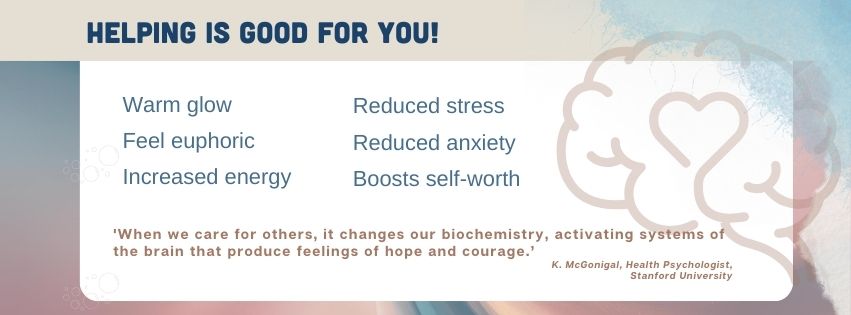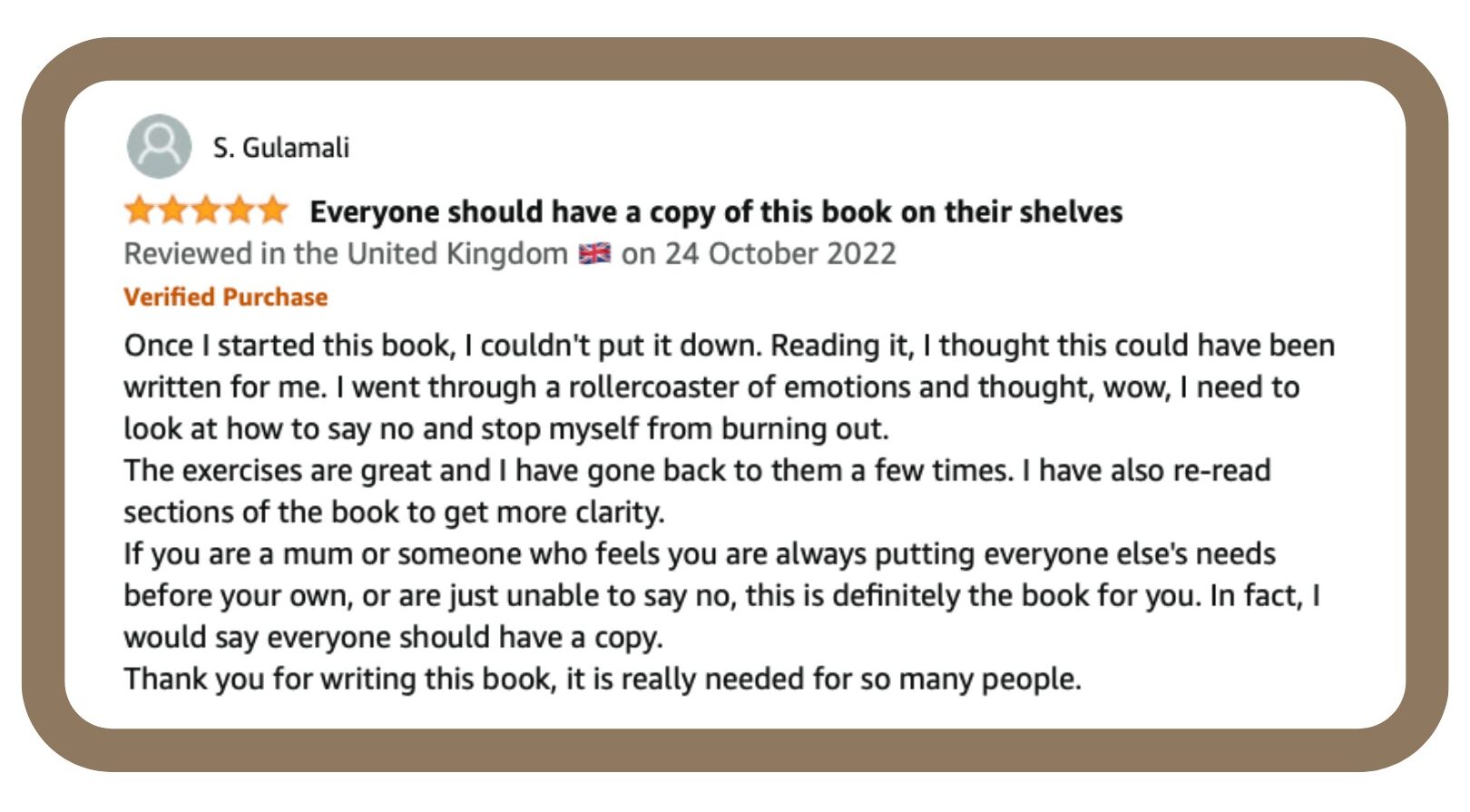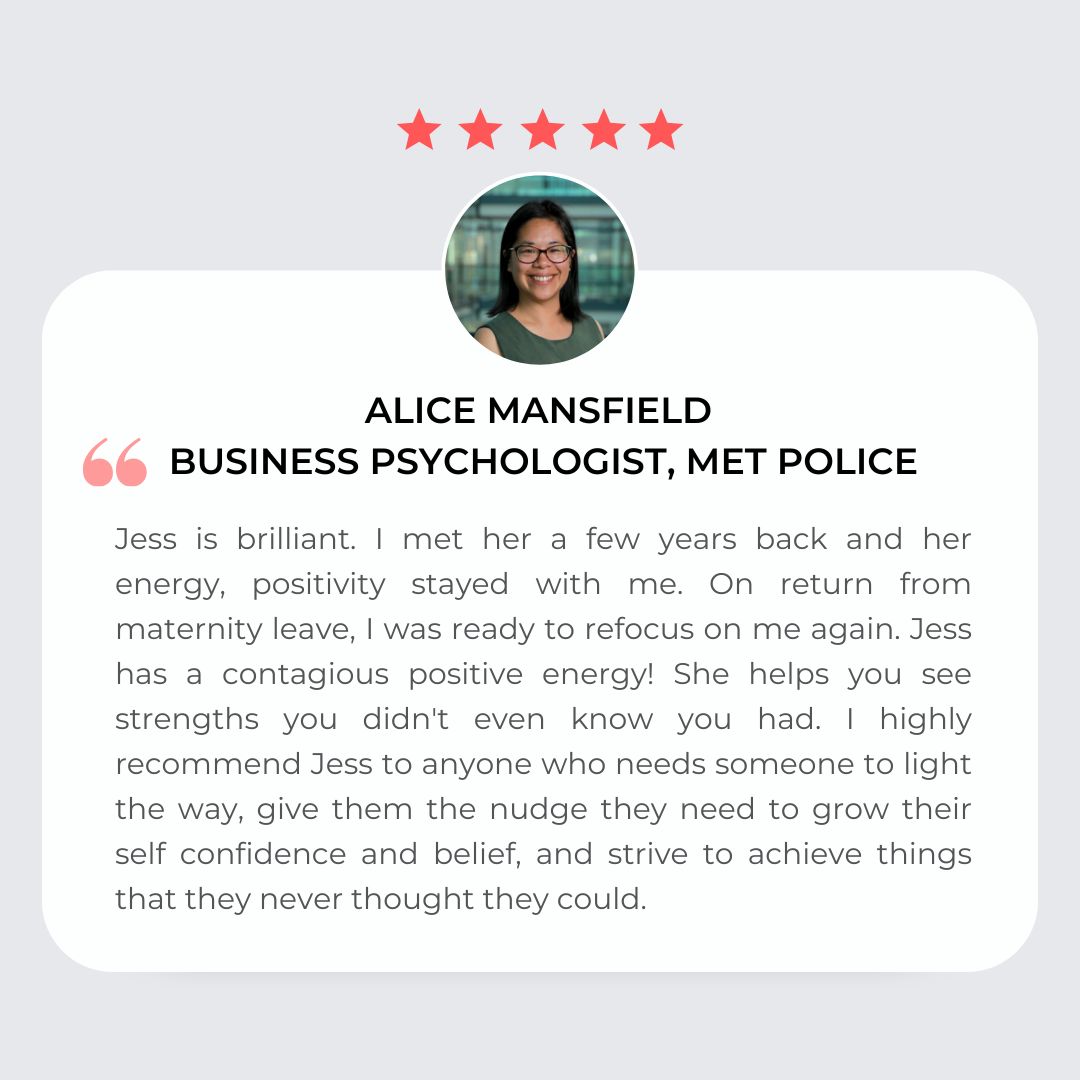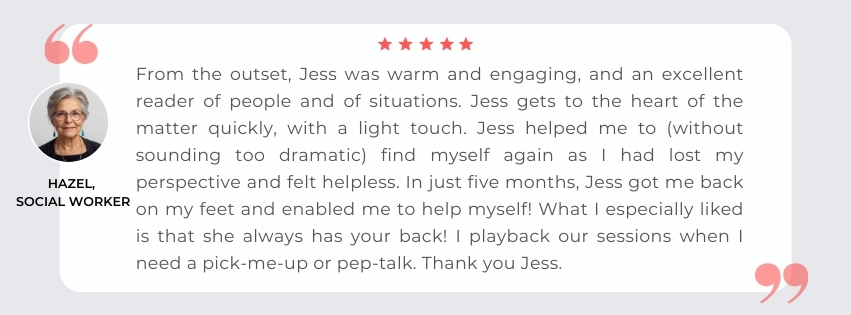
The Super-Helper Syndrome: A Survival Guide for Compassionate People
by Jess Baker & Rod Vincent
Chartered Psychologists & Associate Fellows of the British Psychological Society.
Published by The History Press 2022
Translated into several languages.
Super-Helper Syndrome
What Is Super-Helper Syndrome?
Psychologists Jess Baker and Rod Vincent have coined the term Super-Helper Syndrome to capture a state that some of us find ourselves in: Helping others to the detriment of your own wellbelng.
Helping is essential to all human relationships. It’s a key part of every job, especially those in the health and social care professions. Our ability and desire to help others is a beautiful part of our humanity.
But our desire to help others can also be the cause of our own downfall. When people feel compelled to help others, even to the detriment of their own wellbeing, this is what the authors refer to as Super-Helper Syndrome.
The word ‘syndrome’ here is not meant to imply some sort of medical condition or personality type. It is used to describe a characteristic combination of emotions or behaviour.
Signs of Super-Helper Syndrome
It’s great to help other people but some of us go too far.
- You help in all aspects of your life – your job, family, friends, colleagues, clients, neighbours, volunteering, … an endless list.
- You struggle to say no to requests for help.
- Your relationships are lopsided – you help people but they seldom help you. You feel like you are the one making all the effort: remembering birthdays, keeping in touch, sending well-wishes for that job interview.
- You ask lots of questions of others but notice that they don’t show as much interest in you and your problems.
- You deny your own needs. You feel guilty looking after yourself. You put everyone else’s needs above your own.
- You get easily involved in other people’s drama. You’re constantly offering advice or trying to fix people.
- You are the one that everyone turns to – the first port of call when they are in distress
- People open up to you even when you’ve just met them. Strangers unload their whole life story – the delivery man, the waiter, the woman at the bus stop.
- You feel guilty if you are unable to help.
Adverse Impacts of Super-Helper Syndrome
In the book we explore the underlying beliefs that lead to all of these. If you are susceptible to the SHS, it’s likely that you’ll end up with one or more of the four “adverse impacts” – exhaustion, resentment, exploitation and self-criticism.
Exhaustion: Many helpers run on empty and take this for granted. Are you tired all the time? Do you have no time for yourself? Is your sleep disturbed? Do you suffer muscle tension or headaches? Do you feel irritable, tetchy or just weighed down?
Resentment: Are you stretched out like an elastic band that’s eventually going to snap? It’s easy to say you don’t want anything in return for helping but the reality is it’s hard to keep going indefinitely if you get little reward. At the very least you deserve thanks and recognition. Do you find yourself ruminating on how much you do for others? Do you resent your lopsided friendships, with you doing all of the giving? Do you begrudge the fact that with everyone you meet, you’re the one asking all of the questions?
Exploitation: If you never express any needs, then it’s easy (and convenient too) for other people to act as if you don’t have any, to take advantage of your helping. If you give the impression you want nothing in return, you get nothing in return. That’s why it’s important to take a hard look at whether some of the people you are helping are exploiting you. Do they really need help at all? Do they need your help?
Self-Criticism: It’s ironic that those who are so good at looking after others are often less kind to themselves. Helpers’ self-criticism typically operates on two levels. Do you criticise yourself for not helping enough? (Helper’s guilt). Do you criticise yourself for experiencing the other three adverse impacts of the Super-Helper Syndrome: for feeling exhausted, resentful, or exploited?

Why Do Some People Help More Than Others?
In our book we describe the Super-Helper Syndrome, where people feel compelled to help others but don’t look after their own needs.
Some of these people are in the helping professions but many of them aren’t. In the book we include interview excerpts with everyone from lawyers and accountants to self-employed mums, as well as teachers, nurses, therapists and social workers. What they have in common is that they are 360 degree helpers, helping in all aspects of their lives.
People who are susceptible to the Super-Helper Syndrome are all around us. They are the problem-solvers, the mediators, the fixers who can’t resist any opportunity to help. There is usually one in every family.
So why do some of us help so much? In the book we explore four possible reasons.
1/ Childhood messages: Being brought up to be a helper
Some children (especially girls) are taught that they must help other people in order to be a good person. If this socialisation is strong enough it can lead them to adopt what we call the Good Person Belief, one of the irrational beliefs that drive compulsive helping.
Here’s what interviewee said:
‘I got noticed when I was a good girl. Praise made me feel like I was good enough. I can see where my people-pleasing comes from. Thirty-seven years of autopilot is hard to break.’ Support Worker
It’s hardly surprising when children begin to internalise their parents’ and teachers’ messages. They see themselves as good when they help; they criticise themselves when they don’t. They feed off the praise and rewards. They live in fear of these being taken away. They are on the way to becoming a compulsive helper. Over time, the Good Person Belief becomes part of their operating system. Helping becomes habitual.
Childhood messages: Seeing the suffering from an early age
Other children are socialised by childhood messages that highlight the suffering around them or they grow up with role-models who attempt to alleviate that suffering. While it is understandable to want to do what we can to alleviate the suffering of others, when this is taken to extremes it can lead them to adopt another of the irrational beliefs, a sense of personal responsibility to help everyone you meet. Everyone else’s problem becomes your problem if you hold the Help Everyone Belief (the second irrational belief we describe in the book).
2/ Different levels of empathy
Yes, for some of us it is at least partly in our DNA. There is scientific evidence that helping can have a genetic component. Researchers have found that empathy is determined to some extent by our genes and have pinpointed the genes involved in this. But it’s important to remember that our helping behaviour isn’t entirely determined by our genes. It’s a result of the interaction of our genes and our environment. And as rational beings, we do have a choice over our behaviour: how much we help others, when and who we help and when to ignore the incessant ringtone of our empathy circuitry.
3/ Turning trauma around
Some people metamorphose into helpers as a result of childhood pain.
When we asked people why they became a helper, they often referenced their childhood. Many had experienced early deprivation or hardship. Some grew up with volatile or abusive parents. Childhood trauma doesn’t necessarily make people into helpers. It sculpts them in many forms. But it does shape compulsive helpers out of some of them. They move on from their trauma to become the problem- solver, the fixer, the go-to rescuer in the family. They move on from trauma to a career as an expert helper.
On example of this from our research was a dentist who described her mother as very hot and cold. She said it was the cold bits she remembered. She told us how she needed love but would get nothing from her mother and how that rejection has impacted her own awareness of others. ‘I don’t want to upset anyone; I want to do right by them and help people.’
4/ Circumstances
The fourth reason some people end up helping a lot is because someone else is dependent on them. They may or may not be a natural helper but the circumstances they find themselves in or the responsibilities they face mean that they have little choice.
Examples include looking after a child with Down’s syndrome, a grandfather who has had a stroke, a partner injured in a car accident. There are an estimated 6.5 million unpaid carers in the UK alone. Dependent relationships can also occur in the workplace. They are found across all occupations, where someone believes their patients, customers or the rest of the team couldn’t survive without them.
What drives compulsive helping?
To understand why some people end up as compulsive helpers, we have to explore the underlying motives for helping. From our research with helpers there were certain unconscious irrational beliefs that they tended to hold.
These four Irrational Beliefs each have their own chapter in the book. When you read it, you’ll gain clarity on which one(s) your life has been guided and regulated by. For each of the beliefs we explore how it comes about, and how to gently unpack it.
The Good Person Belief
“I must help others to prove I’m a good person”
The Help Everyone Belief
“I must help everyone”
The They-Couldn’t-Survive-Without-Me Belief
“They couldn’t survive without me ”
The No Needs Belief
“I shouldn’t have any needs”
When any of these beliefs compel you to help – even when you’re already over-loaded exhausted, resentful, taken for granted, or because you feel no one else would do a good enough job, or that you are the only one who can – it is time to notice the damage this is doing to you and the people around you. What once came from a whole-hearted desire to be truly compassionate, now comes from a place of compulsion.
“It’s the kind of book I wish I had read in my twenties!!”
Personally, I found the process of writing this book really hard at times, but it was enlightening – I had to dig deep, really deep, into my psyche, as well as evaluate the research, and analyse the interview and questionnaire data. Rod and I spent weeks (months!) discussing our findings while out on long walks, always challenging each other’s thinking to make sure this actually made sense from both the psychological research stand-point but also from the real-world perspective. I knew that it wasn’t just a fad topic with a great name. It was a harmful state that a lot of people find themselves in, and until now, there was no name or language to explain any of it.
Putting a name to these unhelpful and unhealthy feelings and motivations, helps us to recognise the human experience, that ‘it’s not just me’, and then it allows us to move on from them.

Super-Helper Syndrome is Unique
When you read the book you’ll find a great deal of information on other, similar, conditions that people find themselves in, such as burnout and compassion fatigue. I just want to give you glimpse of them here…
Super-Helper Syndrome
Helping becomes compulsive
Guilt when saying no
Driven by identity & empathy
Burnout
Workload overwhelms
Doing too much at work for too long
Driven by external demands
Compassion Fatigue
Emotional overload from witnessing suffering
Feeling drained, breaking down, or withdrawing
Driven by constant exposure to other’s suffering
What can you do to avoid or recover from Super-Helper Syndrome?
There are many many ways to avoid and to recover from the signs and symptoms of Super-Helper Syndrome. The book is packed full of supportive and evidence-based solutions drawn from psychology, neuroscience, mindset research, cognitive behaviour therapy, mindful self-compassion.
More importantly though, especially for busy readers, the Spotlights and solutions we offer are simple to follow, and extremely easy to put into practice.
Healthy Helper Mindset
The science of ‘mindset’ is mind-boggling! It’s not just a fad term. We show exactly how to become a healthy helper.
Boundaries Dahling!
I’m so passionate about boundaries, I wrote a song about it… and here, finally, a step by step practice to ensure you choose who, how and when you help.
Support Self-Worth
Instead of writing psycho-babble about acquiring unconditional self-acceptance (that is humanly impossible). We share something that does actually work!
Cultivate Self-Compassion
One of the easiest ways to learn how to show yourself all the beautiful heartwise compassion you readily show others.
Deconstruct Irrational Beliefs
You’ll be taken through the five HEELP steps to help you deconstruct each belief and replace it with a healthier one.
49 Spotlights
We created 49 simple yet powerful activities to help the reader discover and challenge themselves.
I'm Here to Help
Reflective Questions For You
- When was the last time you helped beyond your remit of your job?
- When was the last time you helped out of a compulsion to help?
- List all the people you are currently helping – decide who, how and when you are going to continue to help. Do you need to redefine your helping boundaries?
- Practice giving yourself unconditional self-worth – you deserve to have your own needs met. And if you aren’t meeting them, who will?

Jess Baker CPsychol
If you would like personal guidance on your journey to trying to avoid, or recovering from some of the signs and symptoms of super-helper syndrome, then book a call.
Most of my coaching clients are highly empathic, sensitive, caring, and also feeling frustrated, confused, resentful, sad or have lost their sense of self.
Stay In Touch


Discover more…

The Super-Helper Syndrome

Compassion At Work

Dynamic Helper Archetypes
Featured In





